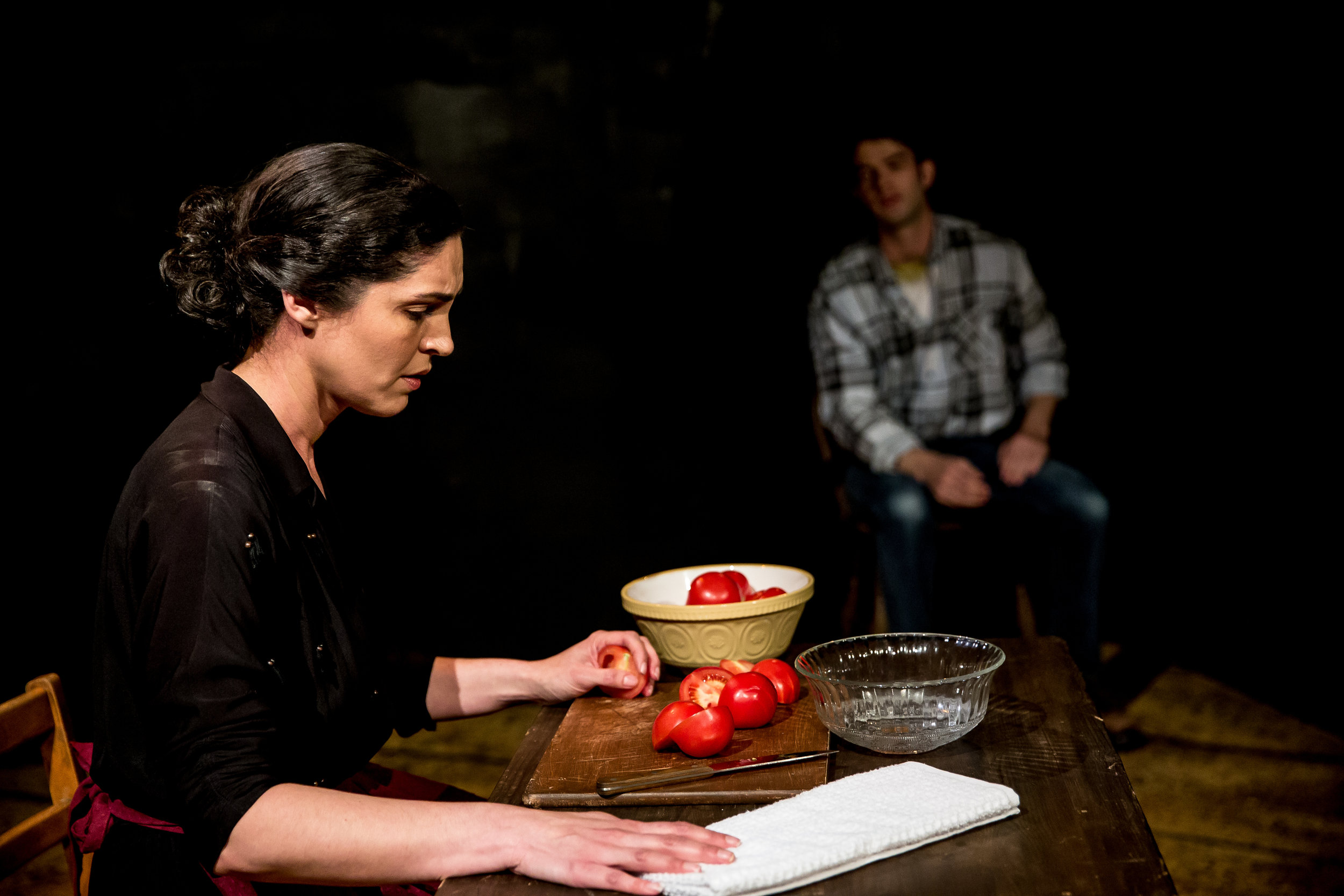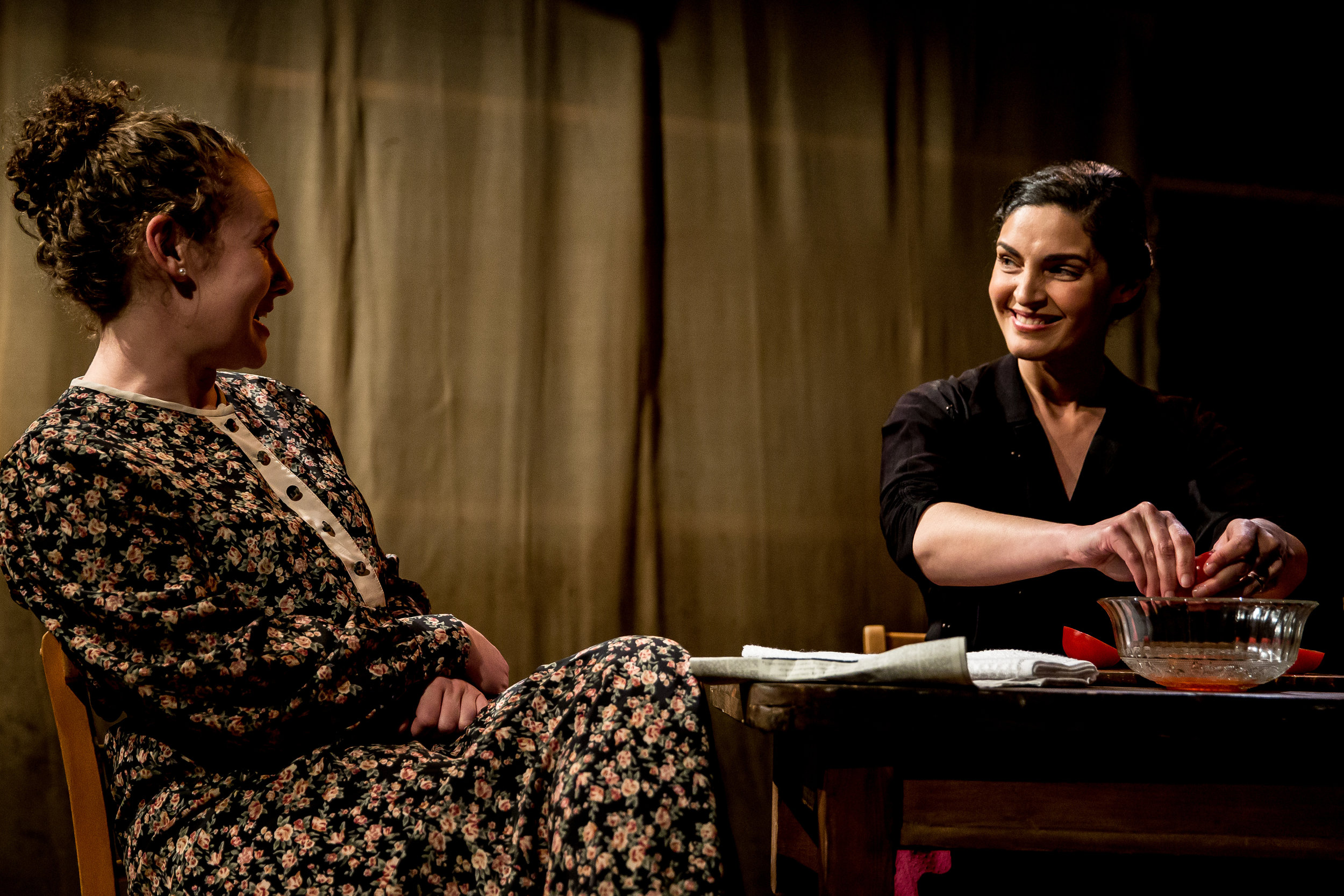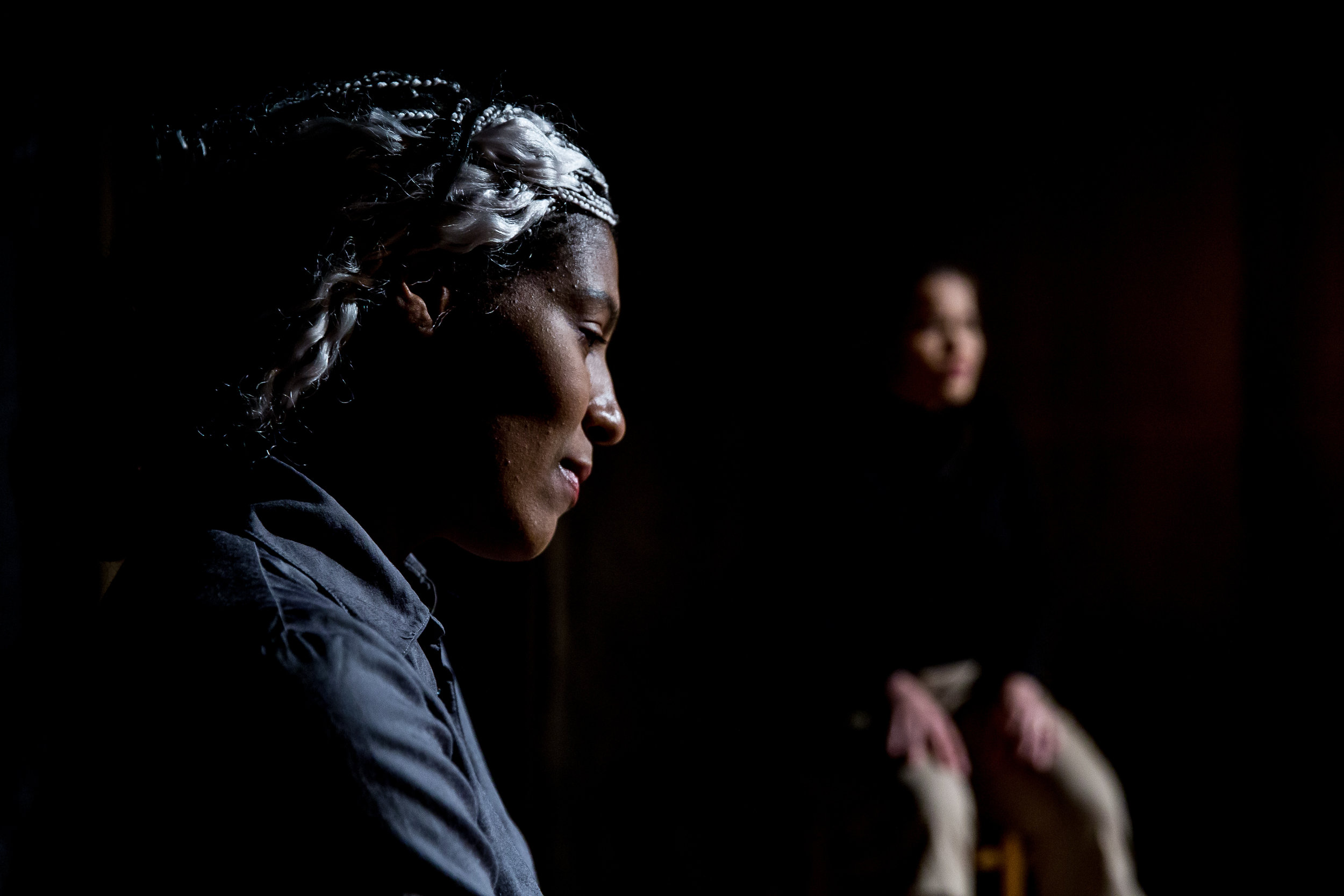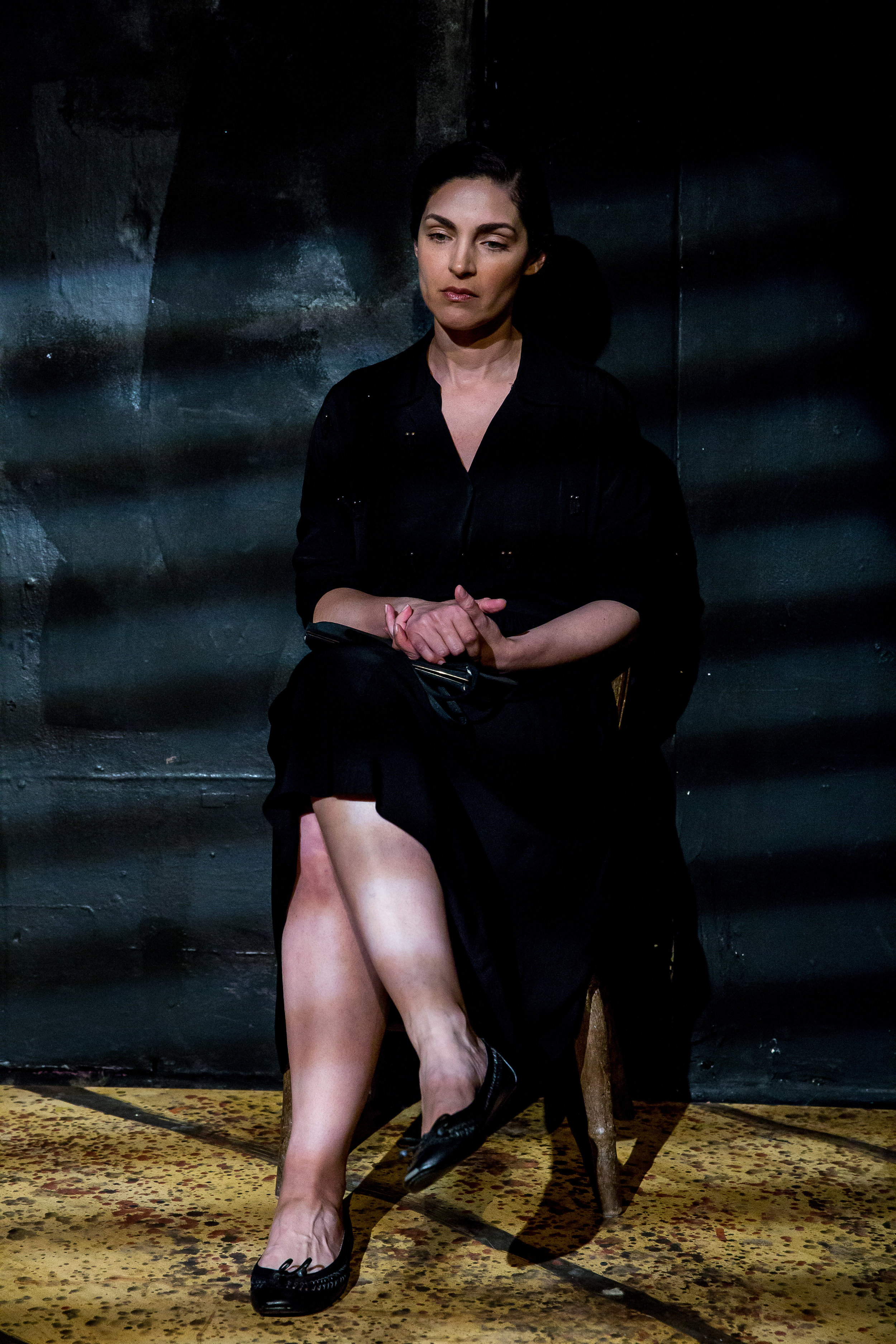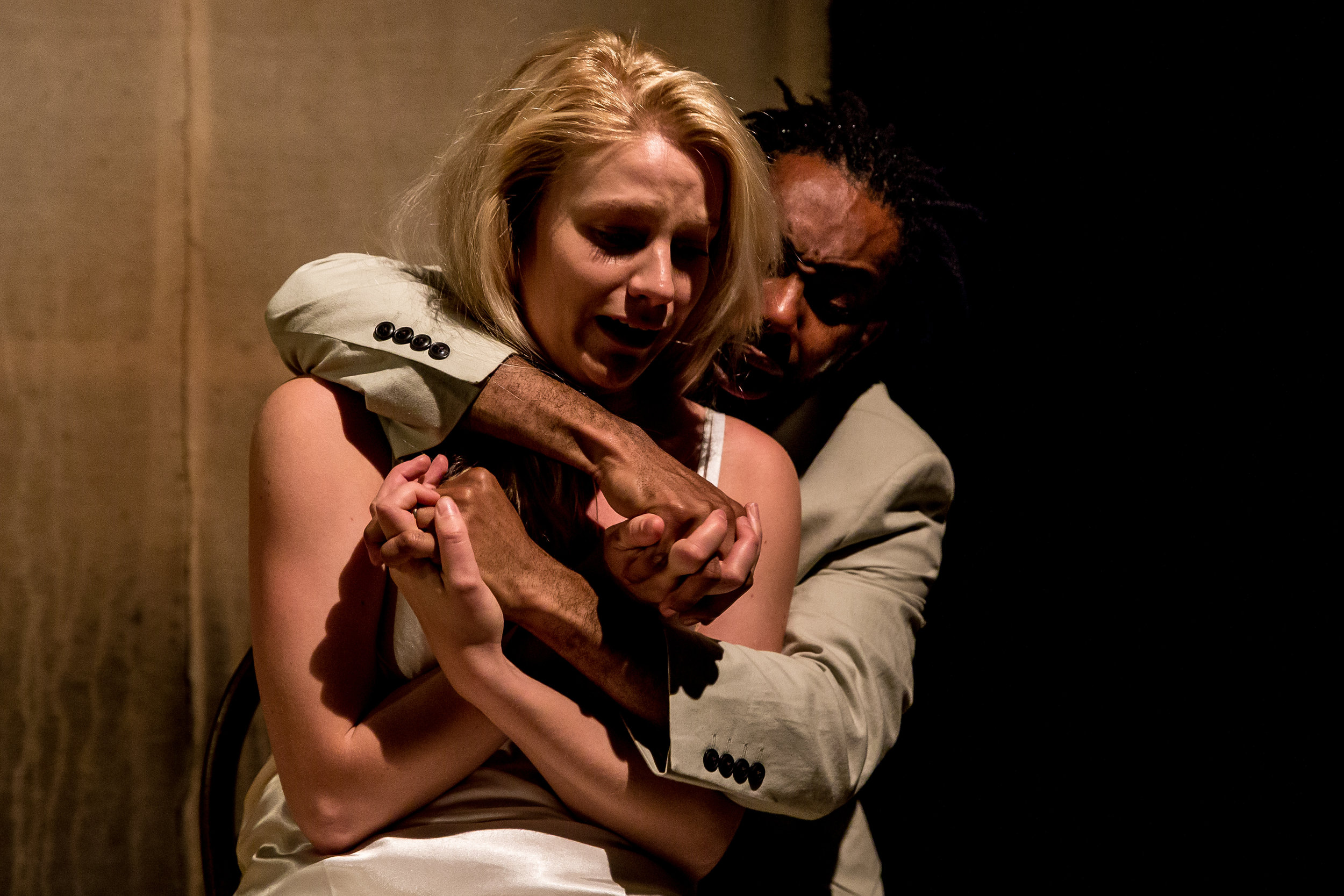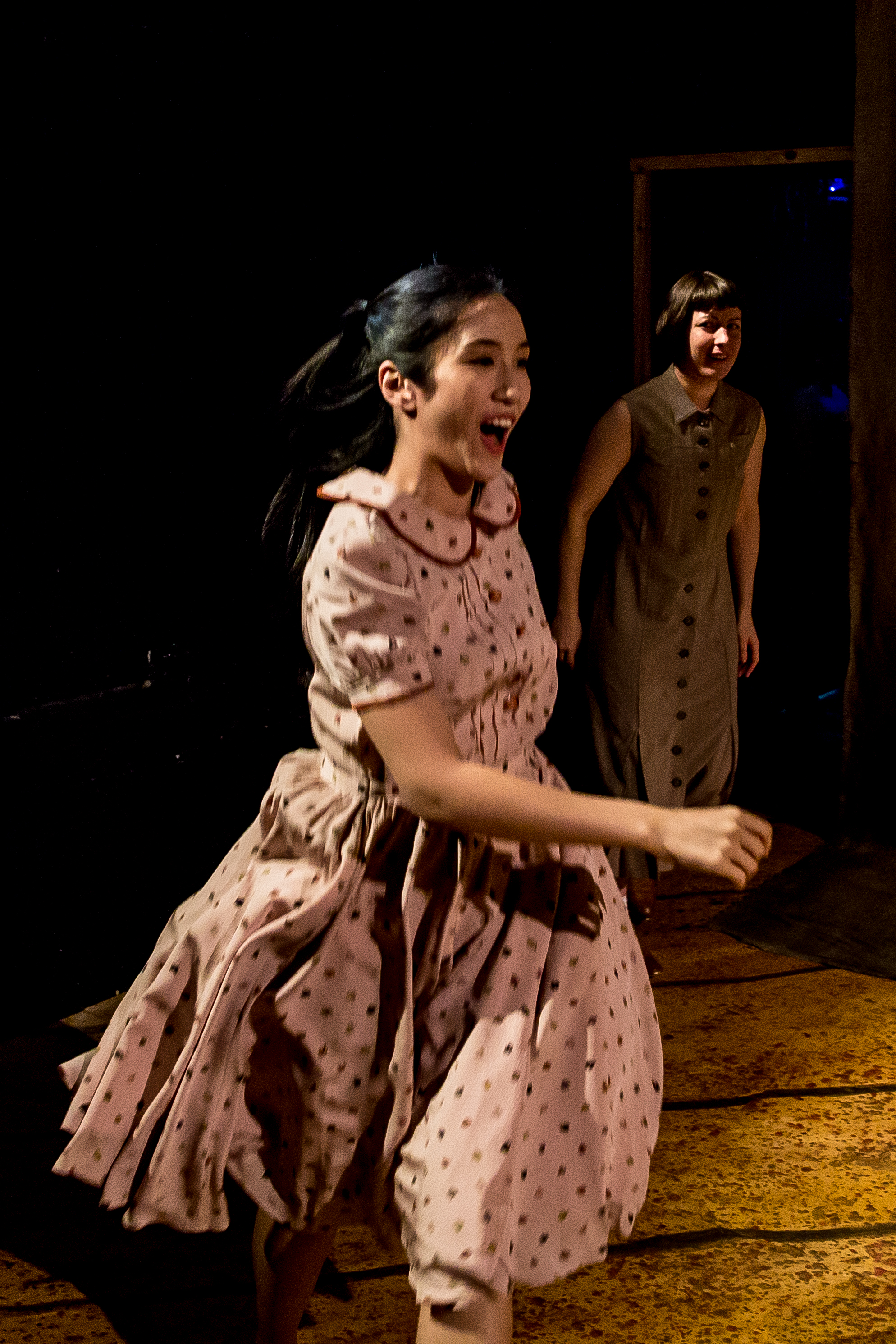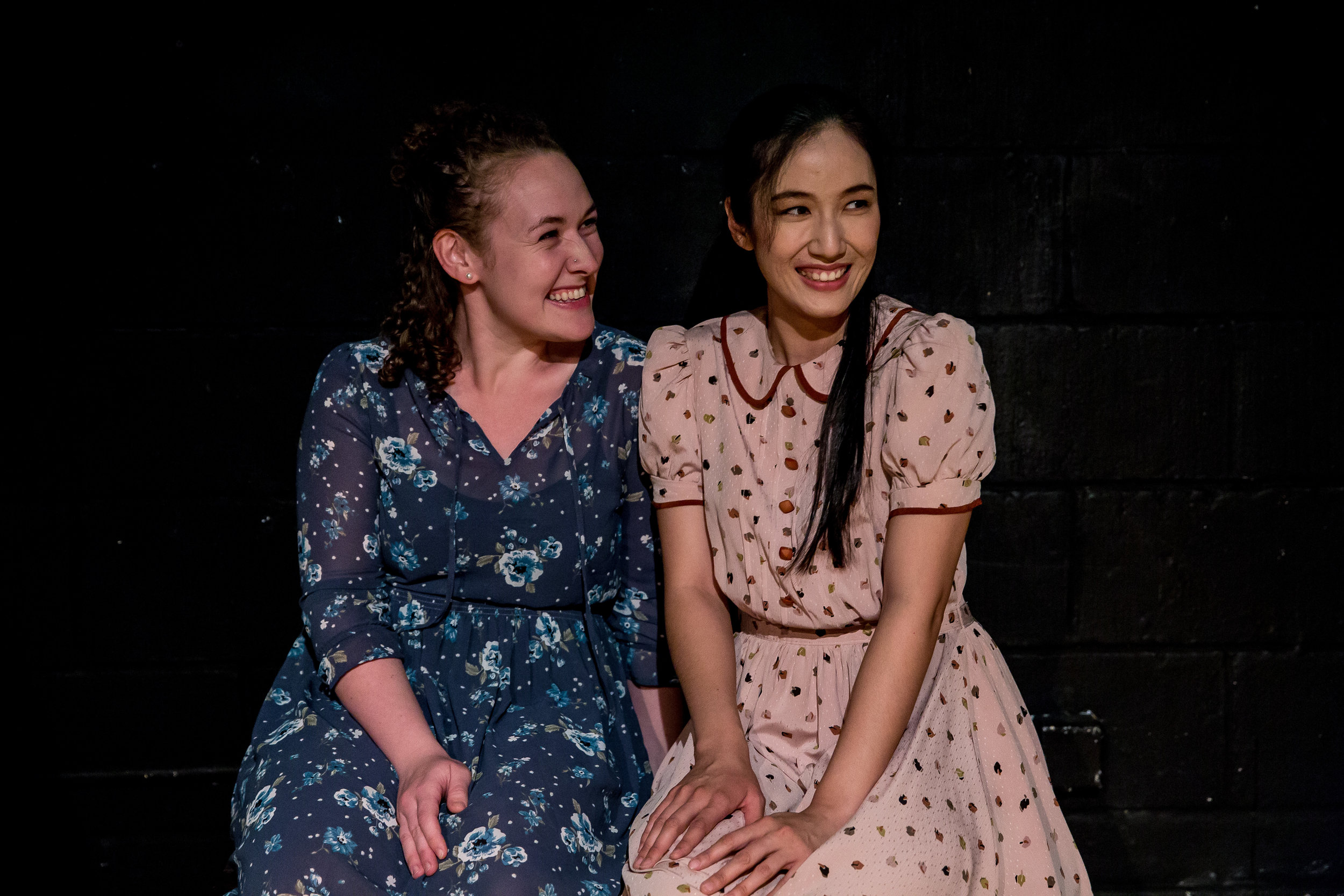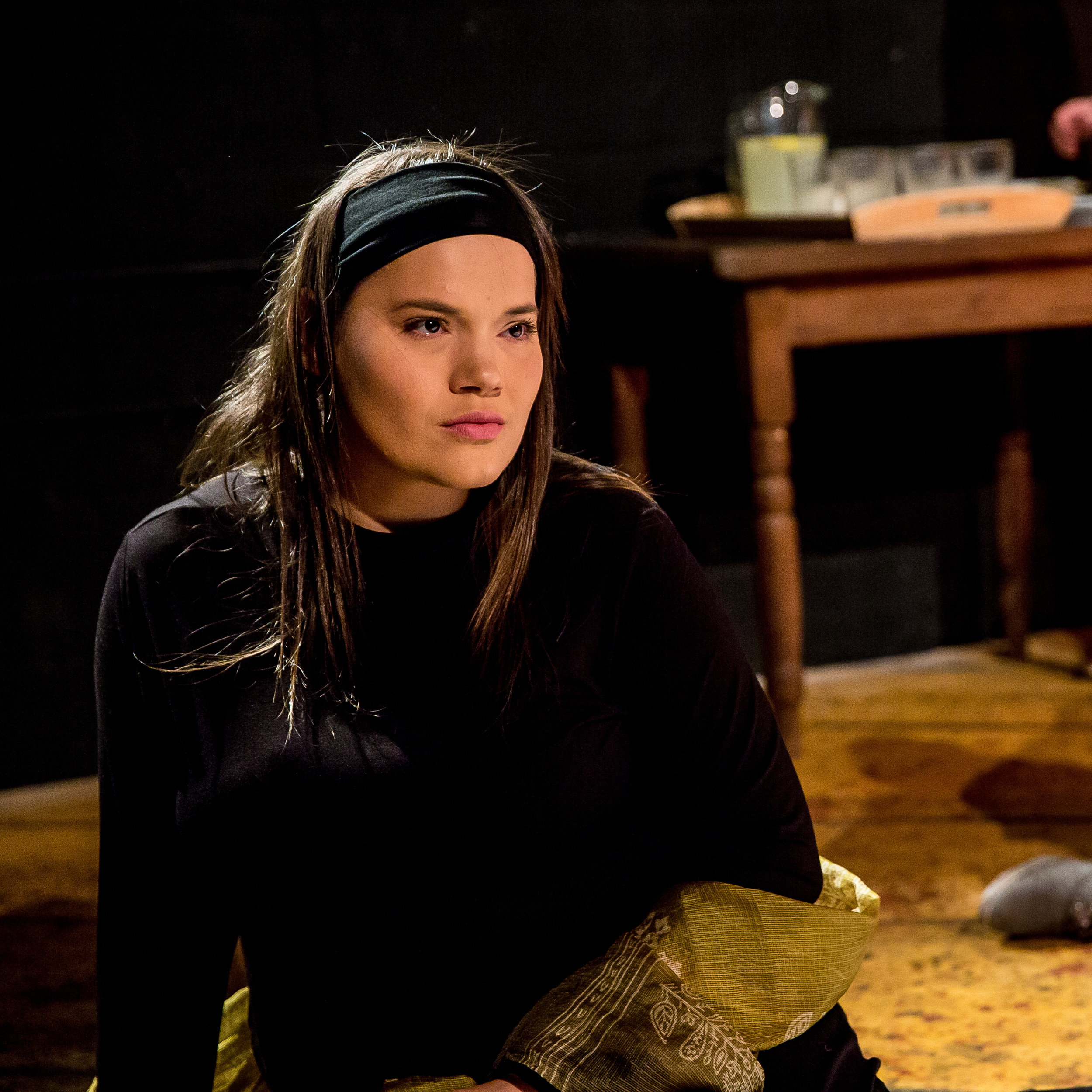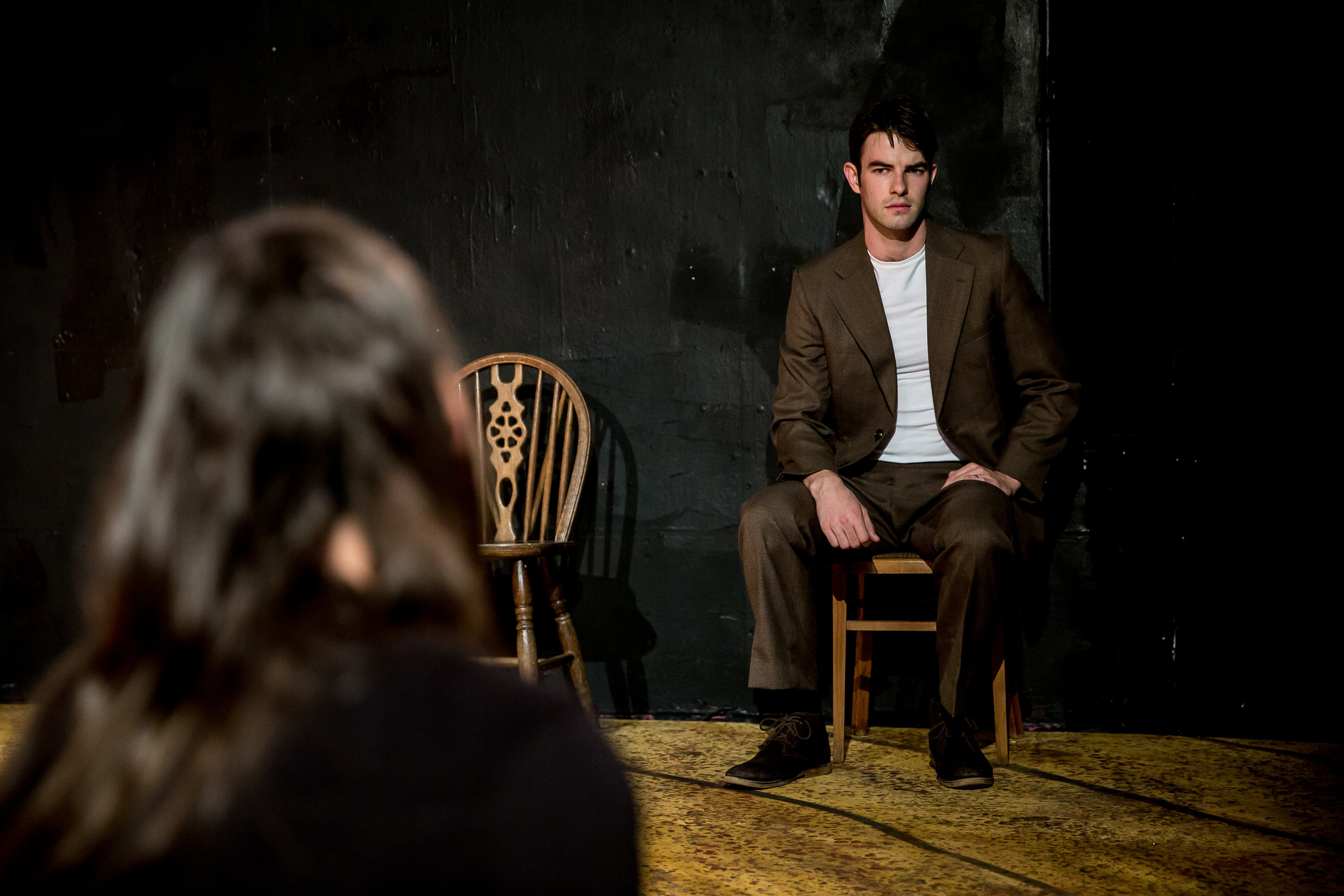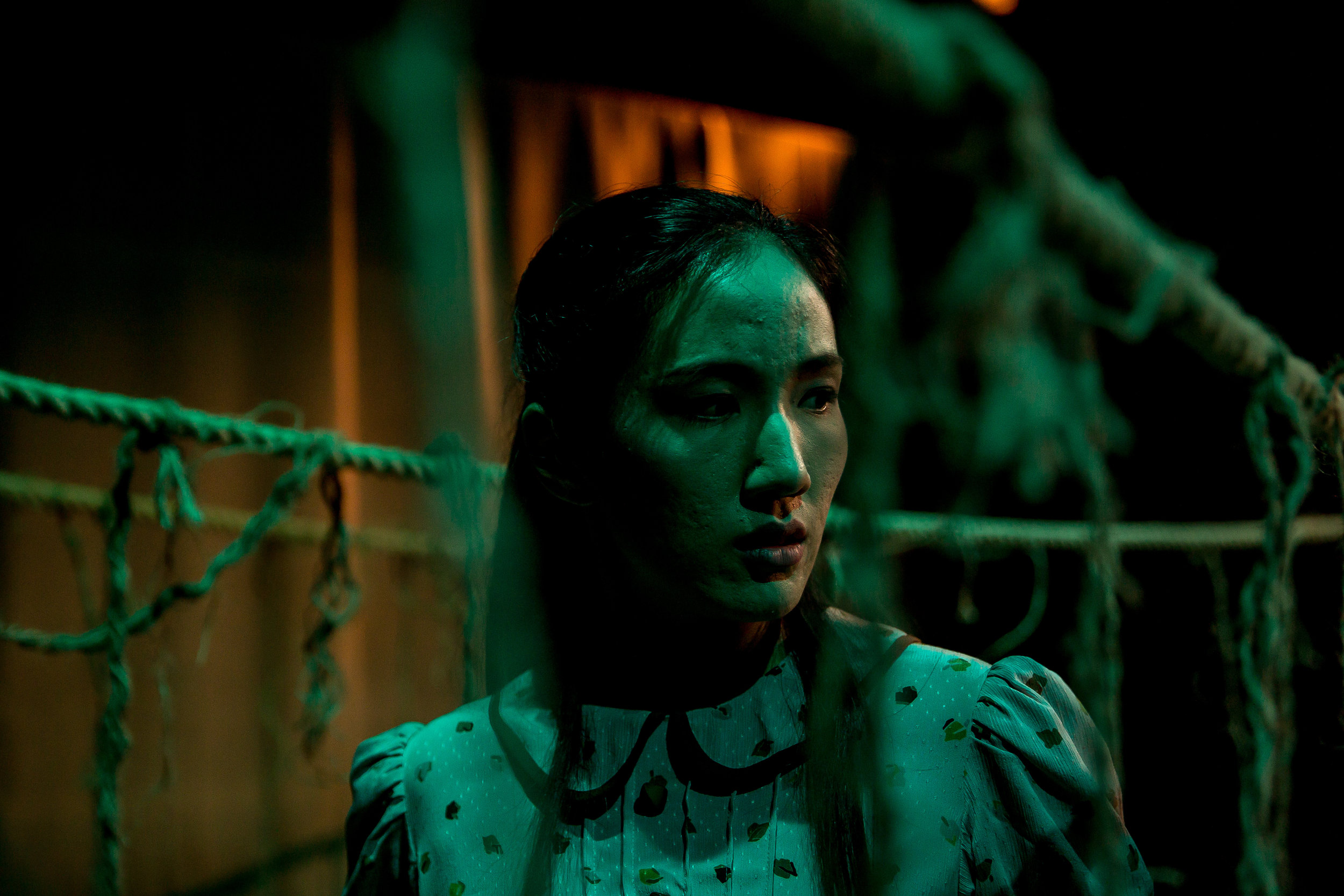Blood Wedding
with MFA students East 15, April - May 2019
Some years ago I directed Blood Wedding at The National Institute of Dramatic Art in Australia setting it in 60’s rural Australia and translating the story so it examined the relationship between the original custodians of the land and the white settlers.
I came back to this text with the international course at East 15 as I found it to be an extraordinary text for students to work on: demanding precision and depth and subtlety. The student cohort in this group came from France, Malaysia, Puerto Rico, America, Norway, China and Spain. Using their first languages and natural vernaculars I found the students were free and uninhibited and able to reach for the depths inherent in this complex text.
It was a wonderful project and the willingness and curiosity of the students meant that I was not only able to use my multilingual intracultural practice in the process of the work but together we were able to find a way to have all the languages present in the rehearsal room exist in performance without losing meaning. The student reflections explain the process during rehearsals and its impact in rehearsal and performance.
Student Reflection 2
Working with Kristine has truly been an eye opening experience. Prior to this, I had not had the opportunity to simply be myself during a rehearsal process; which from the beginning, Kristine has drawn on heavily. During our time in rehearsals, I have been reintroduced to the concept of being present and simply listening to the other actors on stage. I have come to understand that this full engagement is most effectively executed through ridding myself of any artificial ideas or lenses that ultimately diminish my personal experiences and unique qualities. It is from this authentic transparency that I then am able to respond truthfully, as myself, to what has occurred on stage rather than allowing preconceived ideas to block what should come organically.
Along with this notion of listening and being present that is required of actors, we have spent a great deal of our time finding the pleasure in playing. In fact, this work began before we even picked up the text. It was through finding the pleasure to play that a complicité was discovered and built upon. Due to this, I now have an awareness of the influence that complicté between actors has on the work that is carried out as well as understanding that it is a required aspect of performance that enables an actor to fully listen and respond accordingly.
Going forward, I am significantly more confident and comfortable with bringing my true and authentic self to the rehearsal process and I am aware that this is something that should take place from the beginning. I understand that I truly am enough and that is what sets me apart from other actors. This process has shown me that there is inevitably no need to complicate or over analyse anything in regards to characters, relationships, or even circumstances because that work is done through the text itself, and ultimately what is seen is not a plethora of characters playing given circumstances but simply a cohort of actors playing together with skill to tell a story.
Student Reflection 4
While working with Kristine I have come to a deeper understanding of myself as an actor. Kristine puts the actor in the center of the work, nurturing each person’s individuality and background. As a result of being encouraged to embrace my own personal traits, I experience to have found a more profound presence on stage. In the beginning this was a frightening experience, as I didn’t experience the usual comfort of hiding behind a character. However, as I have continued working in this manner, I have truly found something new and truthful about the way I approach acting. As a result, I feel braver, freer and more playful as an artist. As an actor you can easily get set in ideas of what a specific scene or character in a play is about. However, when having this preconception of the script you are not completely open to the scene and the other actors you are playing with. Kristine encourages you to be brave, to stay open and to truly listen to the ensemble you`re a part of. In this way, the work stays new and fresh. In addition, you are not able to hide behind false interpretation of the text in hand, rather you experience a new and truthful way of working with a script.
Another aspect of Kristine`s practice that I have truly benefited from is her way of working with the actor’s own language and culture. I have recognized that when working in my native language, I`ll bring something pure, raw and honest to what I`m doing. I have previously had challenges integrating these aspects of myself when working with the English language. However, having had the opportunity to work in my mother tongue, I have been able to bridge my experiences when speaking Norwegian into the English language. I have recognized that its possible to bring the rhythm, authenticity and roots of my own language and culture into another language. This has been a highly valuable experience for me and is something I will bring with me into future work.
Student Reflection 6
The foundation of the rehearsal process with Kristine is to listen not just with your ears, but by using your whole self. By achieving a higher sense of listening you can get in “complicité” with everyone in the ensemble and play well together.
Something I’m taking away from the rehearsal process with Kristine is feeling more comfortable with who I am as an actor. She lets us be ourselves by embracing our roots and uniqueness and not trying to fit some standard imposed by the industry, society or even ourselves.
I will keep using the technique of working the lines in my native language even if the play is to be presented in English. I’m aware that this is something I will not be able to bring to the rehearsal room with other directors but I will use it when working on my own because it really helped me to understand at a physical and sensorial level the meaning of what I am saying and not just a mere definition of it.
Kristine have a very honest approach when it comes to directing, she will tell you things exactly as she sees them and will push you to be authentic on the stage as well as during the rehearsals.
Student Reflection 1
In this process with Kristine, I learned an essential part of theatre work. The term “complicité”, which means building a connection with my scene partner and with the whole ensemble. The director focuses on the humanity and individuality of each actor and gets them to reach their full potential. Being bilingual gave me the opportunity to work in my native language: Spanish. For me, it was empowering because I haven’t been able to use it before for acting purposes in England.
The fact that the text was originally written in Spanish gave it muscularity and momentum. It was a gift for me, that I am a native Spanish speaker so I could aid my fellow actors when they needed to understand the poetry within. I found myself in the text and could give it the human and poetic sense that already lives with it.
Another thing that I discovered during the process, and that helped me get out of my own head, is that the answer is always on the other person (scene partner). Also, finding that pleasure to play on stage, listening to what’s been said as for the first time, and replying as one does in real life, are useful tools for any actor’s career. There’s no need to create an elaborate character or lose myself in that world because being human is enough.
Student Reflection 3
Our show is a multilingual one. It is a great chance for the international course. We are asked to use our own language or accent sometimes during the show. The biggest challenge of a multilingual show is how to communicate while you do not understand your scene partners. In order to solve this problem, we did some really useful exercise before we start the rehearsal. Two different language speakers sit back to back, use their own language to discuss one topic. The aim of that exercise is listening. You have to listen carefully what your partners is talking though you do not understand him/her. I was really worried about that, but after doing that I found when you listening to your partner really carefully, you can feel his breath, rhythm, mood and attitude. It really help you to understand what he is saying. And then, just response, follow the rhythm, say your words with sincere. Making the communication is what this exercise for. And also, we did a lot of listening exercise to help us reach the aim and make the style work.
The actors are themselves on the stage, they use their own bodies to tell the story. Be yourself on the stage, not to act, be present, show how you feeling at the moment as an actor. With the help of sets, sounds, costumes, the audience will believe in you.
Student Reflection 5
Working with Kristine was really useful. In rehearsal, the process of using native languages in improvisations help actors whose native language is not English helps them to connect to the situation in a way that they usually would not with English. When speaking a language that is not their native one – English for instance –, actors sometimes have a tendency to present what they think an English speaker should look like, sound like, and the way they think they should behave. By doing so, they leave their identity at the door, and the performance becomes stale. When using their native language, those actors bring back their identity into the performance. They can then keep what they found in their native language, and apply it to the English text, bringing their cultural identity, their uniqueness, in a way that they usually wouldn't.
Student Reflection 7
Kristine approaches the rehearsal process with the actor and the audience at the core of her attention. Her work with the actor aims to remove all boundaries that “performing” may create, including using a second language. Working with two languages in a rehearsal environment demands that the actor must focus all of their energy on truly listening to what they are being given by their scene partner. Kristine avoids the term character almost exclusively to require the actor to bring solely themselves and their “sensitivity” into the work. In a school environment, this approach reveals a very truthful bond between the actors on stage and can be extremely compelling to watch and experience as an actor. Stripping down the text to just two people speaking truthfully (but with subtext) can remove habits or unnecessary fluff from the actor’s delivery.
Kristine does not mince her words. She is direct with her notes and works on the education of the actor. Her approach is very different to any I have experienced, but can aid actors to not hide behind a text and to fully embrace the power of truthfully listening.
